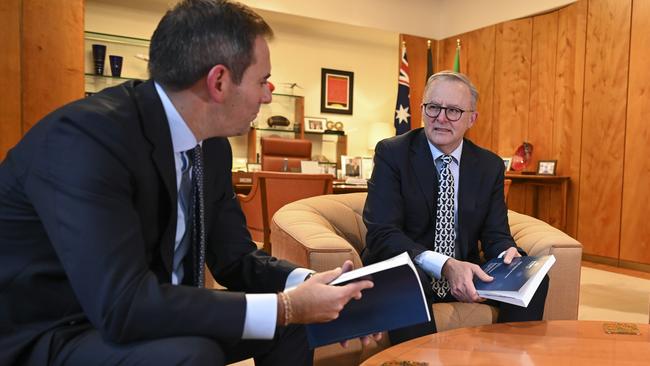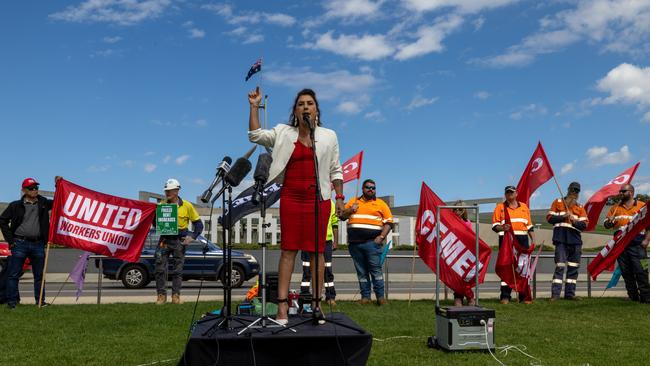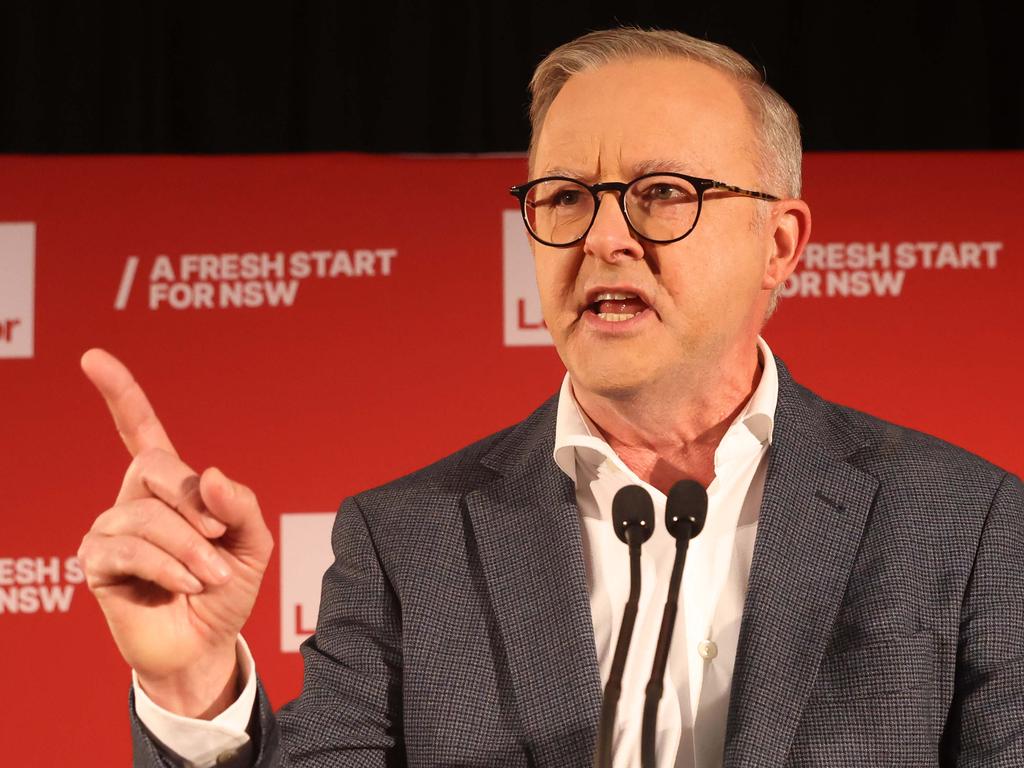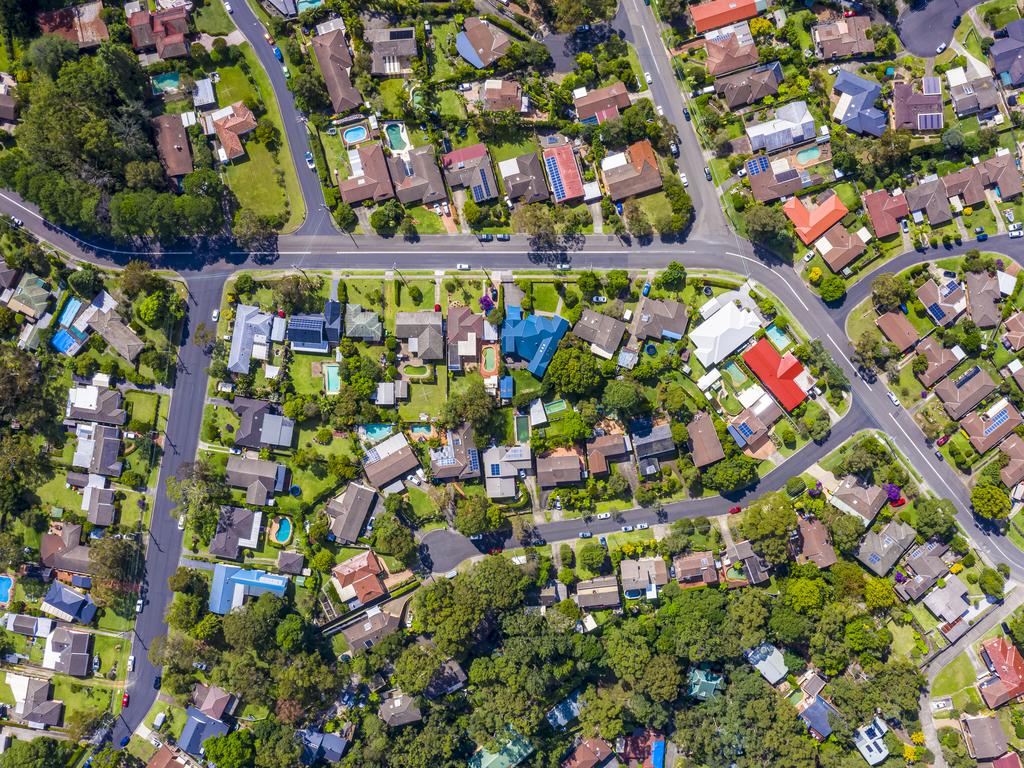Bricks and mortar housing is best way to capitalise on surplus

Budget night saw Labor ministers hobnob with corporate donors and lobbyists, and later on hang out at speakeasies on the National Circuit. Among Wednesday’s rounds of budget media interviews there will be more fundraising events, thus ensuring Labor’s own campaign coffers are also in surplus.
For so many of the ministers and their staffers the reality of Australia’s housing affordability crisis might seem far from their minds – living in their realm of travel allowance-funded luxury in Canberra.
It’s a national disgrace, however, that we don’t have enough affordable dwellings currently, let alone for the future. Conservative estimates from the welfare sector already say as a nation we are short 650,000 dwellings that could provide safe, affordable accommodation for both owner-occupiers and renters alike.

In the midst of this Labor is pushing the Orwellian titled Housing Australia Future Fund, a $10bn money-go-round built on public sector debt and apparently the panacea to our housing crisis.
The HAFF doesn’t have the support of the Coalition, and the Greens for once are actually asking the right questions about whether the scheme is fit for purpose.
There’s been a lot of huffing and puffing and threats from Housing Minister Julie Collins to blow the Greens’ house down for them daring to question the sense in an off-budget fund run by accounting spivs that will only deliver 30,000 homes a year over five years if, and only if, the fund makes investment returns.
The latest Collins threat is to use the legislation as a double-dissolution trigger, such is the hubris of the Albanistas that the next election win is already locked in.
We have a national housing deficit of 650,000 dwellings already and that’s before we start accommodating the federal government’s planned 400,000-per-year additional visitors and new residents from overseas.
We have been told the HAFF will co-invest with the country’s industry super funds but, other than the usual Labor-adoring conga line of funds, such as Cbus and others who only work for members are lukewarm on the idea.
Industry Superannuation Australia, as reported by the AFR’s Phil Coorey, commissioned political polling on the issue of super and housing. The report identified that the Morrison government plan to draw down super for housing was a dead duck. This apparently was greeted with much mirth by Labor-aligned people being briefed.
Then came the clanger. Fund members seriously questioned why their hard-earned super dollars should go into underperforming social housing funds just to do the government’s job. Super members had a clear message on affordable and social housing in the research: they saw that as the role of government and why so many of us in record numbers pay tax.
Super funds are not only deeply concerned about the actual returns their members might get from a fund run by government bureaucrats, and no doubt expert advice from the likes of PwC, but they now know their own members don’t support the investment.
Industry super members want maximum returns and have, under choice of super, the ability to move their funds to the highest-performing funds with ease.
This conundrum is at the heart of Labor’s design fault within its HAFF. The fund was born out of the myopic ambition of the small-target strategy of the last election campaign and is like bringing a water pistol to fight a bushfire.
Labor needs to rethink its approach, and quickly. If a kid from a single-mother household, raised in a housing commission home, can make it to being Prime Minister, what’s so wrong with government-built and owned housing?
Labor should directly build, as a national asset, housing to meet market demand. Labor should institute a program to manufacture affordable, sustainable, socially owned living accommodation to actually put downward pressure on rents everywhere.
The Albanese Housing Futures Commission would be a legacy project that could rebuild our nation’s stocks of dwindling public housing across the nation. We did this with war service homes after WWII. We did it in the 1960s and ’70s with Housing Commission homes.
Australian’s access to affordable housing options through a new AHFC shouldn’t be hobbled by a Labor administration that lacks the nation-building vision of Whitlam, Hawke or Rudd.
Not every tenant can afford to rent a multimillion-dollar terrace in Sydney’s Dulwich Hill with a Prime Minister as their landlord.
Australia’s reliance on mums and dads with the incentive of negative gearing to do the heavy lifting on new housing supply is also unsustainable.

The mirage of super funds investing in a less-than-desirable asset class isn’t supported by the actions of the most responsible and largest industry funds nor, as we now know, their millions of members.
Jim Chalmers has shown extraordinary vision and fiscal discipline to deliver a budget surplus. We now need him to help out his struggling ministerial colleague, Julie Collins. The budget surplus is a great achievement, it’s putting Australia’s financial house in order. What Labor now needs to do is start ordering new houses and in record numbers.
What we need is an ambitious delivery of publicly funded bricks and mortar to rebuild our nation’s supply of affordable public housing. As a wealthy nation we cannot only house all our new Australians who are coming, but also be looking after the most vulnerable Australians already struggling to put a roof over their heads.





While it is pleasing to see Jim Chalmers start to get Labor’s financial house in order, with the first Labor surplus since 1989, it’s the issue of housing that will now need his formidable intellect.